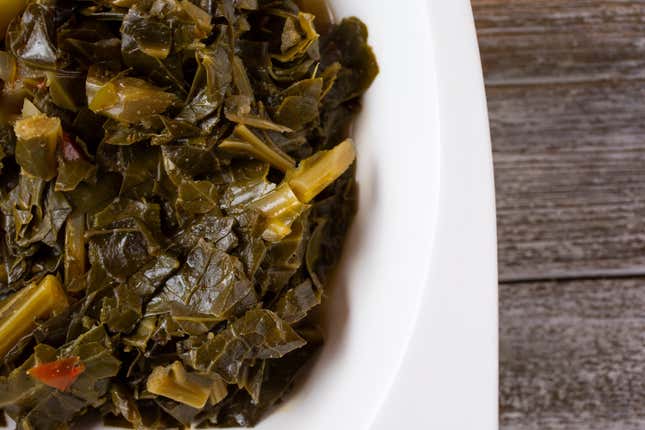
Collard greens are mandatory on any soul food menu and are often the star of a Black family dinner table. The history of these glorious greens can be traced to enslaved African Americans and poor whites in the South, who relied on the inexpensive, healthy vegetable to feed their families. But while every Black family has their own special way of preparing the beloved veggies, you may not know that there are many varieties of collards that can’t be found in your local grocery store.
African American families once saved and shared a variety of collard seeds intergenerationally in an effort to keep them alive. But as many have left farm life for urban apartment living, home vegetable gardens aren’t as common. That means that many of the varieties of collards are becoming rare and in some cases, extinct. But a group of farmers and activists known as The Heirloom Collard Project are doing their best to keep the rare collard varieties alive.
Big Daddy Bluestem and Miss Annie Pearl Counselman are just some of the varieties that have been preserved in the rare collection. The Heirloom Collard Project website gives shares information on each variety, which has a unique story and history. Some are over 100 years old.
The project works to preserve some of the rare varieties of collard seeds, regenerate them and promote sharing the seeds across different regions of the country. The Heirloom Collard Project also wants to establish a mentorship program to support the next generation of seed savers.
“When you grow your own food, when you save your own seeds, that’s an ancient tradition that’s been passed down,” says 29-year-old Amirah Mitchell. Her business, Sistah Seeds in 2021, preserves produce seeds that are significant to Black and brown culture.
Mitchell says growing collard seeds has provided her with a connection to her ancestors. “They don’t have to be the next kale, the next superfood,” Mitchell says. “Because they’re special — and they’re special to me.”

